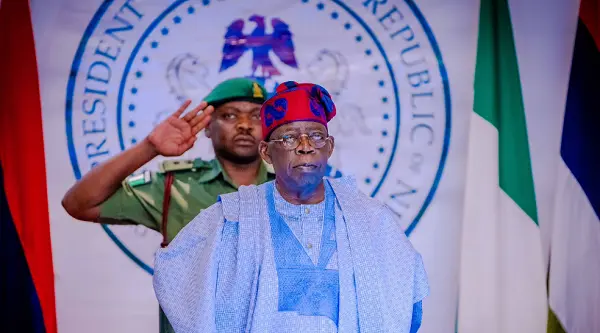LAGOS — Five weeks after President Bola Tinubu recalled ambassadors and 21 days before the October 31 deadline for their return, the Federal Government appears to have backtracked on the policy, fuelling speculations that the government may have given them a months extension.
On September 2, President Tinubu recalled all of Nigeria’s ambassadors, both career and non-career envoys. Nigeria has no fewer than 300 foreign missions.
The recall was communicated by the Minister of Foreign Affairs, Ambassador Yusuf Tuggar.
Sequel to inquiries on the letter recalling the Nigerian High Commissioner to the UK, Ambassador Sarafa Ishola, Ambassador Tuggar, clarified that all career and non-career ambassadors had been recalled on the instructions of President Tinubu.
Confirming the move, the Presidency in another statement by its spokesman, Mr Ajuri Ngelale, said: “The President’s directive is sequel to his careful study of the present state of affairs at Nigerian consulate offices and embassies worldwide, and in line with the President’s Renewed Hope agenda, the President is determined to ensure that world-class efficiency and quality, will henceforth, characterize foreign and domestic service delivery to citizens, residents and prospective visitors alike.”
No going back, ministry officials insist
Although sources at the Ministry of Foreign Affairs said there was no going back on the recall, there is nothing on ground to facilitate the envoy’s return on or before October 31, an ambassador told Vanguard.
The real reason the government has not set machinery in motion for the October 31 recall of all ambassadors, deputy ambassadors and consuls-general is still hazy.
However, a senior staff of the Foreign Affairs Ministry who craved anonymity, said: “So far, no machinery has been put in motion for return of the envoys.
“Under normal circumstances, each envoy who is expected to return by the end of this month, by now should have received his or her AIEs (Authority to incur Expenditures) for his or her passages.’’
The AIE explains the details of the entitlement of each envoy in terms of their passages and other travel arrangements to return to Nigeria.
According to the official, “it is traditional and very important to have swiftly sent these AIEs to ambassadors and other envoys because you don’t expect an ambassador to wake up one morning and just jump into a flight without advanced booking as well as making arrangements to airfreight his or her belongings home.”
She said the government might have had a change of heart, “if not, by now, they (envoys) would have equally received cash backing.”
Contacted, a serving ambassador told Vanguard: “We are in the dark over the whole issue. I asked some foreign affairs ministry officials, one of them said” “Wwhy don’t you stay there? Why are you in a hurry to return?
‘’They don’t expect you to trek home. Stay put until the government makes up its mind to send you money to come back or extend your stay.’”
The ambassador, a female, who said she would like to come home immediately to be with her family, regretted that she could not do so given the experience of some former ambassadors who returned but waited for over five years before getting their entitlements.
“Some of them advised us to stay put until the government does the needful by sending us AIEs for our passages,” she added.
Another diplomat who pleaded anonymity, said he expected the ministry to be tidying up the arrangement.
Asked if the October 31 date would be met, even as the ministry is yet to conclude the official document, he said: “They (envoys) were given October ending, so they should be preparing by now. That is part of the bureaucracy but that shouldn’t be a problem.
“The ministry has the right to ask the officer to come back but the ministry also has the obligation to pay before they come back.”
Reacting to the development, former Nigerian Ambassador to the United States, Ambassador Joe Keshi, said overzealous politicians were pressuring and hurting the recall process.
He said: “The normal procedure is to inform colleagues and the host country, among others. It is not a decision that would be made under pressure. It is a normal diplomatic practice; it is nothing unusual, and a lot is being worked out to get them back.
‘’It is like recalling the military from a war zone. They normally take their time. So, the same applies to diplomatic functions but politicians are the ones putting pressure on them because they want to take over the jobs of career ambassadors.
“For almost 10–15 years now, no career ambassador has been sent to the US, so the ministry of foreign affairs has been destroyed by politicians.”
Penchant for owing
Vanguard had in the past reported how Nigerian missions across the globe are experiencing financial difficulties. The situation, which was traced to 2016 fiscal year when all Nigerian missions experienced budget shortfalls and delays in payments of overhead and personal allocations, resulted in a situation where a lot of them now owe huge debts to service providers in their host countries.
Those affected include permanent missions in New York, and Washington in the U.S; Caracas in Venezuela; Brasilia in Brazil; Luanda in Angola; Bucharest in Romania; Hanoi in South Vietnam; and the worst hit with nine months salary arrears is Havana, Cuba.
A diplomat who spoke on condition of anonymity, confirmed that the ministry has a penchant for such behaviour.
He said: “The ministry had been doing that for years, but it is wrong that an officer will be on course and he has not been paid for nine months.
“How does the ministry expect the officer to feed himself and his family and do other things? The ministry is right to ask the officer to come back but the ministry also has the obligation to pay them before they come back. Is the ministry going to pay them in dollars or naira when the expenditure is in dollars?”







